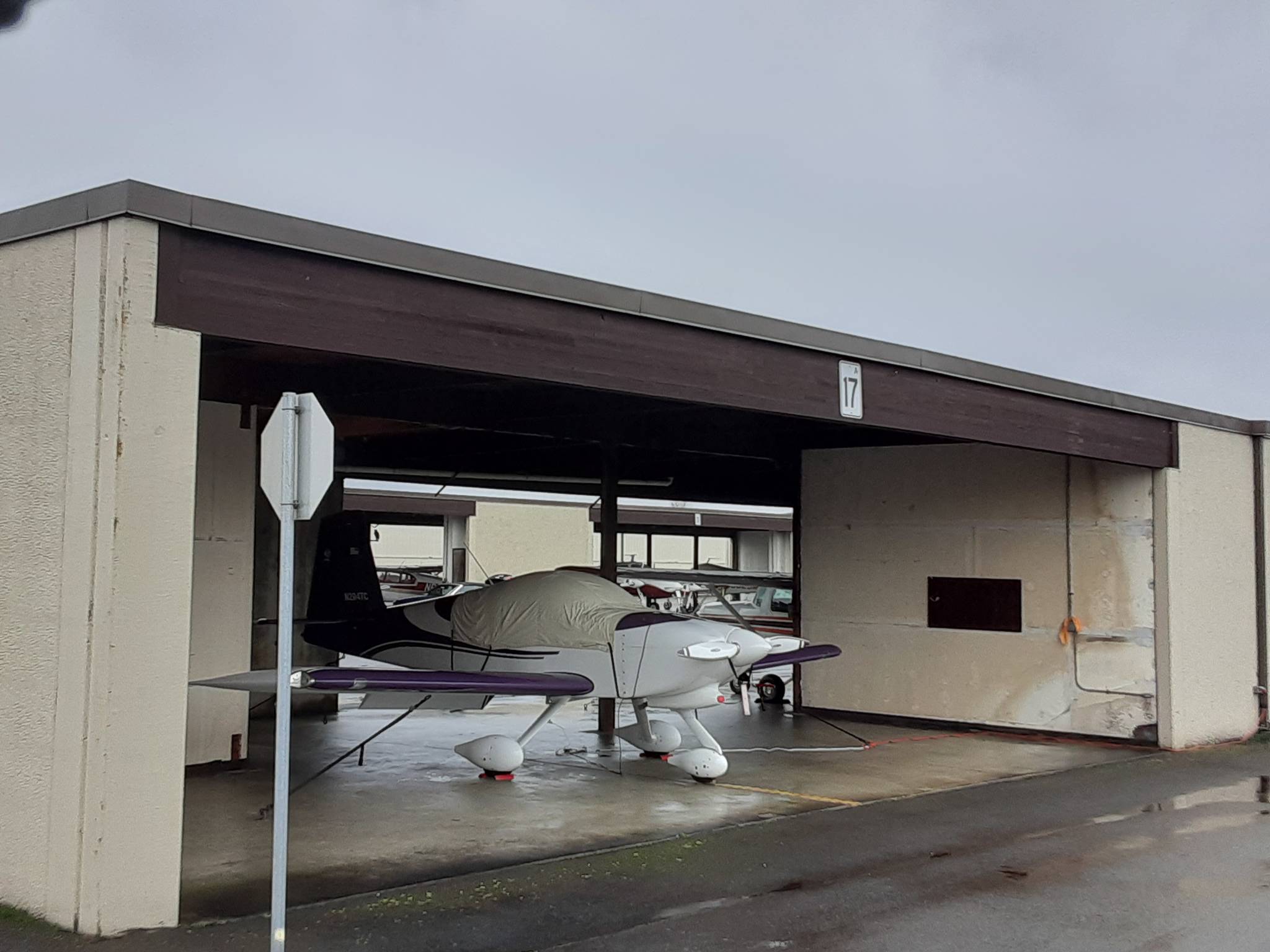The city of Auburn has long been keen about attracting private development to the Auburn Municipal Airport to bring in added revenue to the airport and to fatten the city’s purse.
Fortunately, right now, the city’s interest coincides with a stark, regional need for general aviation airplane hangars.
Recently, MD 500 Development LLC approached the city with a proposal not only to build 17 general aviation T-hangars on land set aside for that purpose in Auburn’s 2015 Airport Master Plan, but also to build six big box hangars to house larger, multimillion-dollar types of planes and aviation-related businesses.
The Auburn City Council expects to vote on a resolution Jan. 18 that would authorize Mayor Nancy Backus to negotiate with the developer to execute the two separate land leases.
Councilmember Bob Baggett left no doubt where he stands.
“We’re looking at around $87,000 a year coming into city for the land lease, and we’re also looking at 2.84 percent on tenants’ taxable monthly rental payments, so this is a sizable amount of revenue coming into the city, which will help offset other areas that need a bit of work, which is a good thing for our city,” Baggett said at Monday’s council study session.
Josh Arndt, real property analyst for the city of Auburn, shared that enthusiasm.
“Specifically for our airport, we have not had this type of private development on the airport since 2005,” Arndt said. “So, you’ve got the immediate impact that will come from construction of the hangars themselves, and the construction sales tax that will come of that.”
The Puget Sound Regional Council recently completed a study of general aviation in the area that looked at other area airports to find out what space is out there for development, and discovered limited expansion opportunities for the general aviation flyer.
Under the general aviation tent, Arndt said, are weekend hobby fliers, flight-training aviation businesses, and whatever is not commercial or parcel-type delivery.
As Airport Manager Tim Mensonides said, by providing more of those hangars, the city would relieve pressure on Boeing Field and Sea-Tac Airport. And by pulling aviation-related businesses into those box hangars, the city would realize long-term economic gains by providing jobs and more.
Here is what the developer has in mind.
• Site A: T-hangars for general aviation fliers on roughly 3 quarters of an acre.
• Site B: Box hangars on 1.5 acres with an apron for businesses operating out of their interior spaces, extending out to the taxiway and fence.
“Our current waiting list (for the existing T-hangars) just at Auburn is 84 people deep waiting for hangars as of today,” Mensonides said. “There are other airports in the area that have completely shut down their waiting lists because of the demand. We actually met with another airport last week, and they’re displacing over 124 tenants, who are looking to come to our airport or closer.”
“We’re taking a small step to filling [that need], and undoubtedly, we will fill those hangars very quickly,” Mensonides added..
“The waiting list is for the T-hangers that are on the airport, those hangars are several years old, and we rate those lesser than the newer hangars, which will be newer and nicer,” Arndt said.
Public Works Director Ingrid Gaub said the city can’t accommodate all 84 people on the waiting list because it doesn’t have room for them, so it’s making the most of the land it has.
Each lease will be for 30 years, which is fairly typical for aviation land leases today.
During the construction phase of the top-of-the-line hangars, Arndt said, the city won’t charge rent.
“Our cost estimate for the two projects is between $4 million and $5 million, which is a lot of money to put out for civil development and construction of the hangars … Rent kicks in at final occupancy, or at a date on or around May 1, 2022. So, roughly a year-and-a half for them to get in from start to finish,” Arndt said.
Once rent comes in, Arndt csaid, the city will charge the first year at 82.5 cents per square foot per year, which, he said, is equal to what a fair-market appraisal in 2019 showed market rents to be locally. Ownership of improvements to the hangar will revert to the city once the 30-year leases run their course.
The proposed lease agreements also give the city and its airport approval authority over any potential subtenants of the box hangars.


